Argentine rock is rock music composed or performed by Argentine bands or artists mostly in Spanish.

Los Natas or Natas were an Argentine stoner rock band formed in 1993 in Martínez, Greater Buenos Aires. In their later releases, they had been leaning towards a more experimental sound described by them as free rock.
Fantasmagoria is an Argentine rock band, which features Gori on vocals and acoustic guitar, Mariano Acosta on vocals and keyboards, Agustin Rocino on drums, and Nicolas Molyna on bass guitar.

"(Get Your Kicks on) Route 66" is a popular rhythm and blues song, composed in 1946 by American songwriter Bobby Troup. The lyrics relate a westward roadtrip on U.S. Route 66, a highway which traversed the western two-thirds of the U.S. from Chicago, Illinois, to Los Angeles, California. The song became a standard, with several renditions appearing on the record charts.
Cumbia villera is a subgenre of cumbia music originating in Argentina in the late 1990s and popularized all over Latin America and Latin communities abroad.
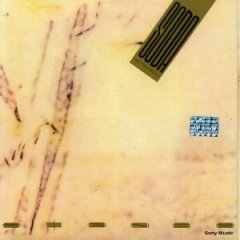
Signos is the third studio album recorded by Argentine rock band Soda Stereo, released on 10 November 1986. It was remastered in 2007 at Sterling Sound Studios in New York. In 2007, the Argentine edition of Rolling Stone ranked it 25 on its list of "The 100 Greatest Albums of National Rock".
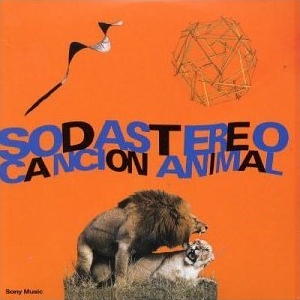
Canción Animal is the fifth album released by the Argentine rock band Soda Stereo, released on September 17, 1990. Many of the songs on the album are among the band's most popular, such as one of their biggest hits "De Música Ligera", the last song played in Soda Stereo's last concert in 1997, "Hombre al agua", "Un Millón de Años Luz", "Te para tres" and others. It is considered one of the best and most influential albums in the history of Latin American rock music. The anthemic status of the album, and specifically "De Música Ligera", is perhaps due to the band's ability to tap into a feeling experienced by almost every Spanish-speaking nation of going from dictatorship to freedom at some point during the 20th century. Many regard it as the best album to ever come out of South America. In 2007, the Argentine edition of Rolling Stone ranked it 9 on its list of "The 100 Greatest Albums of National Rock". The album sold 500,000 copies in Argentina alone.

Sueño Stereo is the seventh and final studio album recorded by Argentine rock band Soda Stereo. It was released by BMG Argentina in 1995. It is considered one of the most important alternative rock records in Spanish and one of the most successful and most important by the band and in all of Latin rock. Rolling Stone considered it the fourth-best in Latin rock history.
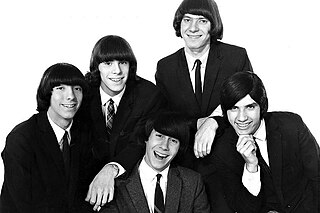
Los Mockers were a popular 1960s rock band in Latin America that was part of the Uruguayan Invasion. They were heavily influenced by The Rolling Stones and covered many of their songs. The band was formed in 1963 in Montevideo, Uruguay but moved to Argentina in 1966 after winning a contract with EMI Argentina. The original lineup disbanded in 1967. They briefly re-united in 2006.

Vida (Life) is the debut album of Argentine rock group Sui Generis, released in 1972 by Microfón.
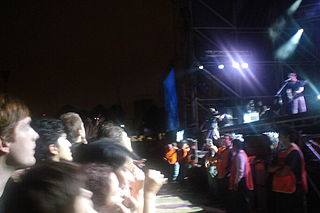
Quilmes Rock is a major Argentine rock festival, held annually from 2002 to 2004, and from 2007 on. It is named after its main sponsor, Cerveza Quilmes brewery. It was held in several venues in Buenos Aires, including the Ferro Stadium and River Plate Stadium.
Traidores is a Uruguayan punk rock band founded during the post-dictatorship disarray of mid-1980s Uruguay.
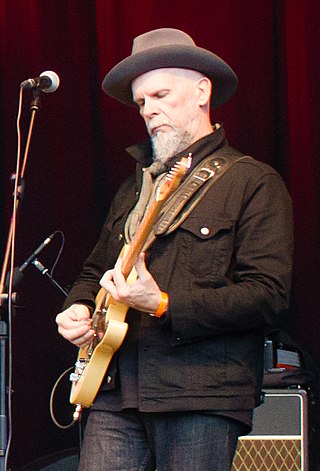
Jimmy Rippetoe, better known by his stage name Jimmy Rip, is an American guitarist, songwriter and record producer, who is known for his work with Jerry Lee Lewis, Mick Jagger, Debbie Harry, Paul Collins & the Beat, Michael Monroe, Henry Lee Summer, Tom Verlaine and Television. Rip began playing guitar at the age of six.

Bbs Paranoicos was a Chilean hardcore punk band formed in 1991. They are one of the most popular punk bands in Chile.
The Rolingas are an Argentine urban tribe comprising fans of the Rolling Stones and Argentine bands influenced by the aforementioned group. The musical genre associated with such bands is known as "rock rolinga" and also "Rock Chabón".

Jose Manuel "Anel" Paz is an Argentinian guitarist, singer, songwriter, producer, and recording and mix engineer.
He has been a member of Los Violadores, and Los Politicos.

América Latina Olé was a concert tour by The Rolling Stones, which began on 3 February 2016 in Santiago and made stops in La Plata, Montevideo, Rio de Janeiro, São Paulo, Porto Alegre, Lima, Bogotá, Mexico City and ended in Havana with a free show on 25 March 2016. The tour was chronicled on two video releases: The Rolling Stones: Havana Moon, which documented the final show, and Olé Olé Olé!: A Trip Across Latin America, a documentary following the band across the continent.
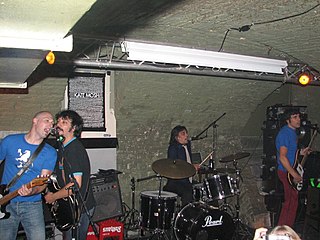
Súper Ratones is a musical group of Argentine rock and pop style from Mar del Plata and established in 1985.
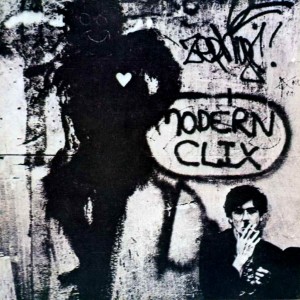
Clics modernos is the second solo studio album by the Argentine musician Charly García, released on November 5, 1983 on SG Discos and Interdisc. It was a decisive work to consolidate the modern trends that would mark the profile of Argentine rock during the 1980s and saw García heralded as a "revolutionary" for his musical and lyrical boldness. It was ranked at number two in the Argentine edition of Rolling Stone's list of The 100 Greatest Albums of Argentine Rock.

"La balsa" is the debut single by the Argentine band Los Gatos, released on July 3, 1967 on Vik, a subsidiary of RCA Victor. Formed in 1967 after the disbandment of Los Gatos Salvajes, Los Gatos were the house band of the bar La Cueva, which became a popular meeting place for rock enthusiasts and the birthplace of Argentine rock—known locally as rock nacional. During the mid-to-late 1960s, Buenos Aires was experiencing a cultural blossoming characterized by innovations in modern art, literature and cinema, largely driven by a burgeoning youth subculture that adhered to the countercultural phenomenon of the decade. The underground had its center in La Cueva, Plaza Francia and the Torcuato di Tella Institute, and identified with British Invasion music. "La balsa" was written by Litto Nebbia—lead vocalist of the band—and Tanguito on May 2, 1967, in the men's toilet of La Perla de Once, another bar frequented by the group. At the time, Argentina was under a military dictatorship led by Juan Carlos Onganía, which regularly imprisoned and persecuted these young bohemians.















